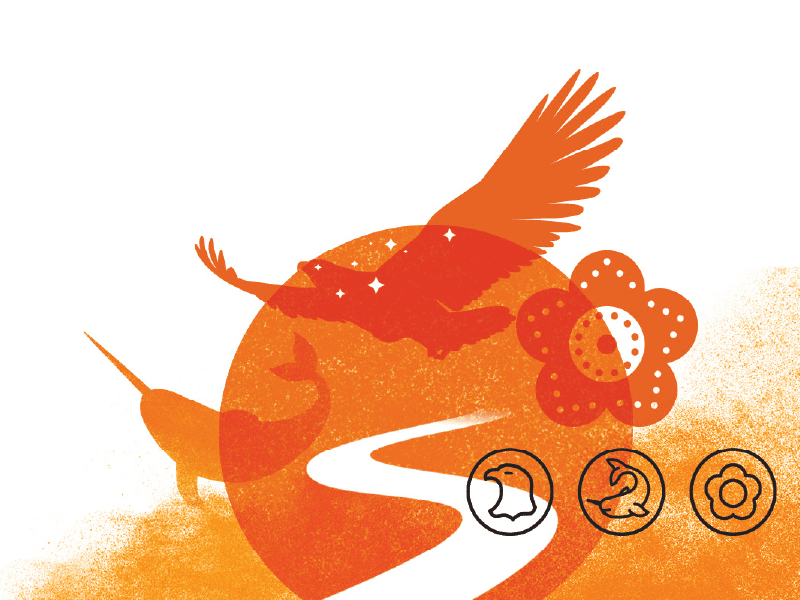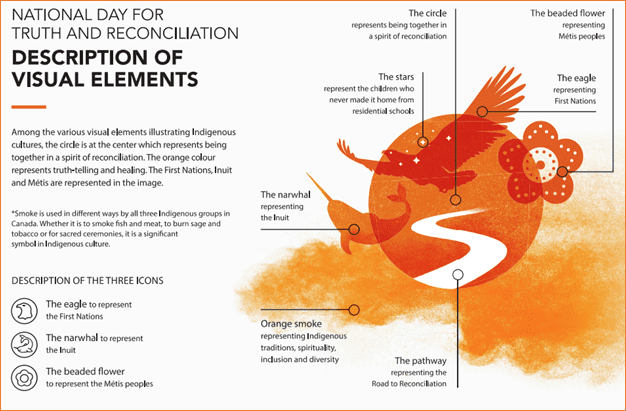National Day for Truth and Reconciliation

September 30, 2022 marks the second National Day for Truth and Reconciliation. The day is a statutory holiday for all federal employees and federally regulated workplaces. Some schools, businesses and different levels of government across the country are also choosing to observe the day, which is also known as Orange Shirt Day.
The day honours the lost children and Survivors of residential schools, their families and communities. Public commemoration of the tragic and painful history and ongoing impacts of residential schools is a vital component of the reconciliation process.
At Abundance Canada, we would like to share the following information with you to create more awareness about Canada’s history with Indigenous Peoples, and to encourage you to share your support for them.
Wear or Display Orange on September 30
Both the National Day for Truth and Reconciliation and Orange Shirt Day take place on September 30.
For many years, Indigenous peoples and allies have been celebrating Orange Shirt Day on Sep 30. This day honours the survivors and remembers those lost through the resident school system.
Wearing an orange shirt represents the systematic stripping of Indigenous culture through the story of Phyllis Webstad of the Stswecem’c Xgat’tem First Nation. When she arrived at school on her first day wearing a bright new orange shirt from her grandmother, the school officials took it from her and forced her to wear school-approved attire.
Wearing orange or displaying orange outside our home (like hanging an orange shirt in your window, or displaying a flag) on Sep 30 is a way to show solidarity and allyship for Indigenous peoples as they reclaim and hold onto their culture and heritage.
Truth and Reconciliation Commission and its Calls to Action
There were 140 federally run Indian Residential Schools which operated in Canada between 1831 and 1998. The last school closed less than 25 years ago. Survivors advocated for recognition and reparations and demanded accountability for the lasting legacy of harms caused. These efforts culminated in:
- the Indian Residential Schools Settlement Agreement
- apologies by the government
- the establishment of the Truth and Reconciliation Commission
- the creation of the National Centre for Truth and Reconciliation
The Truth and Reconciliation Commission ran from 2008 to 2015 and provided those directly or indirectly affected by the legacy of the Indian Residential Schools policy with an opportunity to share their stories and experiences. The National Centre for Truth and Reconciliation has become the permanent archive for the statements, documents and other materials the Commission gathered, and its library and collections are the foundation for ongoing learning and research.
The Commission released its final report detailing 94 calls to action. The National Day for Truth and Reconciliation is a direct response to Call to Action 80, which called for a federal statutory day of commemoration.
To learn more about residential schools in Canada:
This 5-minute video provides educational information on the timeline around residential schools in Canada:
Other resources:
- Truth and Reconciliation Commission of Canada
- National Centre for Truth and Reconciliation
- Indigenous Canada (University of Alberta)
Every child matters.





